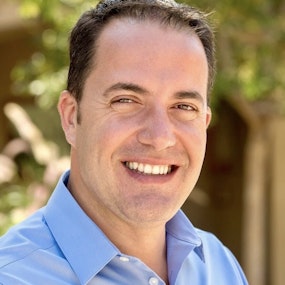In a compelling episode of "The Bliss Business Podcast," hosted by Stephen Sakach, Tullio Siragusa, and Ash Maher, the conversation led into the pervasive issue of workplace burnout. Brought to you by Zero Company, this episode provided not only insights but practical strategies to help individuals and organizations navigate and manage stress more effectively.
Understanding Burnout
The World Health Organization recognizes burnout as an "occupational phenomenon," characterized by emotional exhaustion, depersonalization, and a diminished sense of accomplishment. The hosts explored this definition, emphasizing how unchecked stress could lead to severe professional and personal consequences. They highlighted that burnout is more than just an individual issue; it reflects deeper systemic problems within workplace cultures that prioritize productivity over well-being.
The Role of Passion and Stress
One pivotal moment in the discussion came with a quote from Simon Sinek: "Working hard for something we don't care about is called stress; working hard for something we love is called passion." This sentiment resonated throughout the episode, illustrating how aligning personal values with professional work can mitigate feelings of burnout. The hosts discussed personal anecdotes where passion turned painstaking efforts into fulfilling experiences, suggesting that finding meaningful work is crucial for long-term professional satisfaction.
Practical Strategies to Combat Burnout
The podcast didn't just diagnose the problems associated with burnout; it also offered actionable solutions. Here are some strategies discussed:
-
Empowerment Through Routine: Establishing a disciplined routine can help individuals gain control over their workday, rather than letting the workday control them. This includes setting clear boundaries between work and personal life, especially in remote work settings.
-
Cultural Shifts in the Workplace: Organizations are encouraged to cultivate environments where employees feel valued and recognized. This involves more than just offering perks; it requires a fundamental shift towards acknowledging and addressing the human aspects of work.
-
Investment in Personal Growth: Continuous personal and professional development was highlighted as a key to preventing burnout. The hosts discussed the importance of investing in skills that enhance job satisfaction and personal fulfillment.
-
Mindfulness and Self-Care: Regular practice of mindfulness and self-care routines, such as meditation or physical activities, can significantly reduce stress levels. These practices help maintain a healthy balance between professional demands and personal well-being.
Leveraging Technology and Flexibility
The integration of technology in managing workplace stress was another critical topic. Tools that streamline tasks and foster efficient communication can reduce the burden of overwork. Additionally, flexible work arrangements can help employees manage stress better by allowing them to work in environments that suit their personal and professional needs.
Conclusion
The episode concluded on a hopeful note, with a call to action for both individuals and organizations to reevaluate their approaches to work and well-being. By embracing strategies that promote a balance between achieving professional goals and maintaining personal health, businesses can cultivate environments where employees are not just surviving but thriving.
As the discourse on workplace well-being continues to evolve, episodes like "Beyond Burnout: Navigating Stress and Sustaining Success" from "The Bliss Business Podcast" serve as vital resources for those looking to make meaningful changes in their professional lives and organizational cultures.
For the podcast episode related to this blog click here



